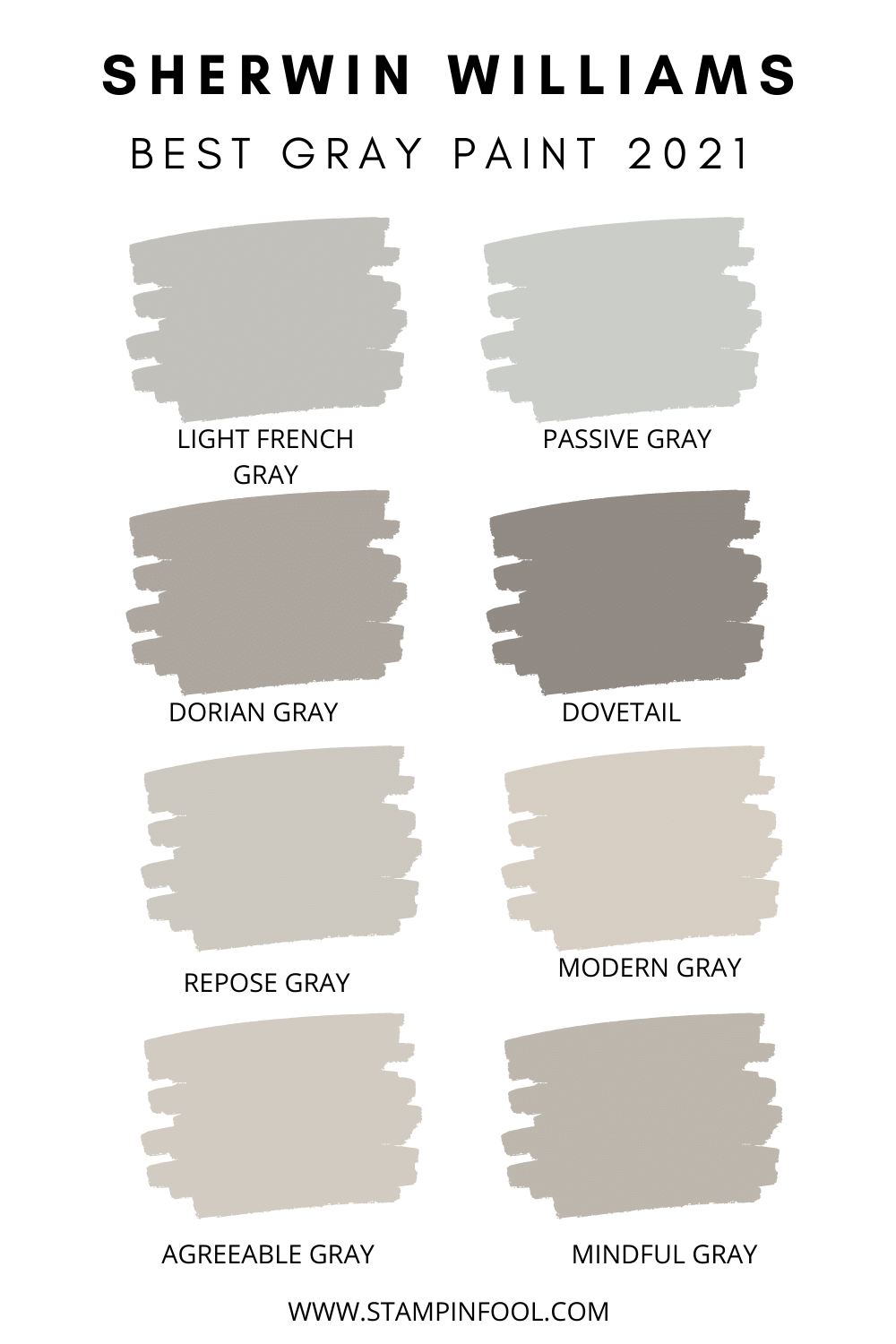Unlocking the Power of Gray Paint Colors

Gray. It's a color that often gets overlooked, dismissed as dull or boring. But in the world of interior design, gray paint colors have become a staple, a versatile chameleon that can transform a room from drab to fab. Why? Because gray isn't just one color; it's a spectrum of sophisticated shades, each with its own personality and potential.
From cool, calming silvers to warm, inviting charcoals, the range of gray paint options is vast. This versatility makes gray an ideal backdrop for any style, whether your taste leans towards minimalist chic or cozy farmhouse. This article will delve into the world of gray paint, exploring its nuances, benefits, and the secrets to choosing the perfect shade for your space.
The popularity of gray hues in interior design is relatively recent. While gray pigments have existed for centuries, their use in home decor was previously limited. The rise of minimalist and modern aesthetics paved the way for gray's ascendance, as homeowners sought versatile neutrals that could create a sense of calm and sophistication. The shift away from bolder, more traditional colors like beige and taupe further solidified gray's position as the go-to neutral.
Choosing the right shade of gray can be tricky. Undertones play a crucial role in determining the overall feel of a room. A gray with blue undertones will feel cooler, while a gray with beige undertones will feel warmer. Understanding these subtle differences is key to achieving the desired atmosphere in your space. Lighting also plays a significant role, as natural and artificial light can dramatically affect how a gray paint color appears on the wall.
Beyond its aesthetic appeal, gray offers practical benefits. Its neutrality makes it a fantastic backdrop for artwork and furniture, allowing these elements to truly shine. Gray can also create a sense of spaciousness, making smaller rooms feel larger and more airy. Moreover, gray is remarkably versatile, pairing seamlessly with a wide range of accent colors, from vibrant jewel tones to soft pastels.
One of the most significant issues when choosing gray paint colors is the impact of lighting. Natural light can dramatically change the appearance of a gray, making it appear cooler or warmer depending on the time of day and the direction the room faces. Artificial lighting also influences how the color is perceived, and it's important to test paint samples under both natural and artificial light sources before committing to a particular shade.
A simple example of using gray paint effectively is in a bedroom. A light, cool gray with blue undertones can create a serene and restful environment, promoting relaxation and sleep. In contrast, a warmer gray with beige undertones can create a more inviting and cozy atmosphere in a living room or dining area.
Benefits of Gray Paint Colors:
1. Versatility: Gray complements a wide range of design styles and color palettes.
2. Sophistication: Gray adds a touch of elegance and modernity to any space.
3. Timelessness: Gray is a classic neutral that won't go out of style quickly.
Best Practices for Implementing Gray Paint Colors:
1. Test paint samples in different lighting conditions.
2. Consider the undertones of the gray.
3. Pair gray with complementary accent colors.
4. Use different shades of gray to create depth and dimension.
5. Consult with a color expert if needed.
Frequently Asked Questions:
1. What are the most popular shades of gray paint? Some popular choices include Agreeable Gray, Repose Gray, and Chelsea Gray.
2. What colors go well with gray walls? Almost any color! White, black, navy, yellow, and green are all popular choices.
3. How can I choose the right shade of gray for my room? Consider the room's lighting, size, and overall style.
4. Can I use gray paint in a small room? Yes, lighter shades of gray can make a small room feel larger.
5. Is gray paint a good choice for a kitchen? Absolutely! Gray is a popular choice for kitchen cabinets and walls.
6. What is the difference between warm gray and cool gray? Warm grays have beige or brown undertones, while cool grays have blue or green undertones.
7. How do I prevent my gray walls from looking too flat? Use different shades of gray and incorporate texture with rugs, throw pillows, and artwork.
8. Can I mix different shades of gray paint? Yes, you can mix grays to create a custom color.
Tips and Tricks:
Use painter's tape to create crisp lines and prevent bleeding when painting with gray. Consider using a primer before painting, especially if you are painting over a dark color.
In conclusion, the world of gray paint colors offers a wealth of possibilities for transforming your home. From the subtle elegance of a soft dove gray to the dramatic impact of a deep charcoal, there's a shade of gray to suit every taste and style. By understanding the nuances of undertones, lighting, and complementary colors, you can unlock the true potential of gray and create a space that is both beautiful and inviting. Choosing the right shade of gray can elevate your home's aesthetic, creating a calming and sophisticated atmosphere. Don't be afraid to experiment with different shades and combinations to find the perfect gray for your next project. Take the leap and discover the transformative power of gray – you might be surprised at the stunning results.
Unlocking the elegance of sherwin williams slate gray
Unlocking transformers on your pc a comprehensive guide
Unveiling the secrets of raising villains chapter 57












